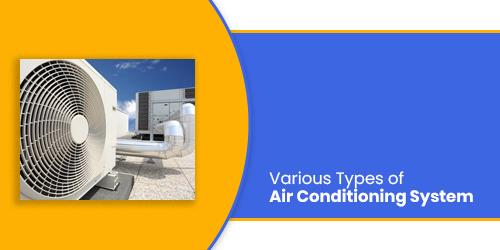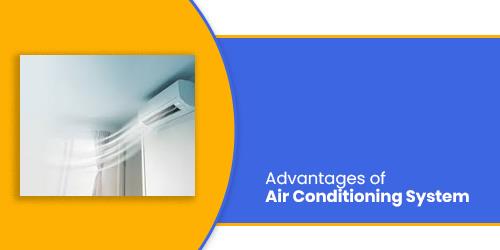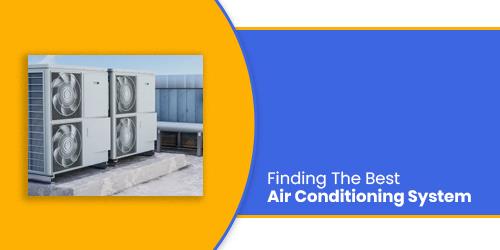Top Air Conditioning Systems: Their Efficient Role, and Productivity
The air conditioning system is known as a significant piece of technology in the environment regulation sector. This device is designed to lower indoor temperatures and remove moisture from buildings and vehicles. Its operation involves complex mechanical, electrical, or chemical processes that effectively enhance comfort by carefully controlling the indoor temperature and humidity for various needs.
The most common type of air conditioning system uses a vapor compression refrigeration cycle. This process relies on a refrigerant to absorb heat from indoor air and then release it outside. The refrigerant goes through a cycle of cooling and reintegration, allowing it to repeatedly absorb heat.
Systems used in different regions often adopt either direct expansion or chilled water methods. Direct expansion cools the air directly using refrigerative substances, while chilled water systems use cold water to moderate the atmospheric temperature.
However, with the dynamic number of benefits, these systems have some drawbacks as well. And so, to mitigate these issues, it's crucial to choose energy-efficient systems. High-efficiency models consume less energy while maintaining effective cooling. Responsible usage involves setting thermostats at optimal seasonal temperatures and turning off systems when they are not needed. These measures collectively reduce the environmental impact associated with air conditioning systems. Let’s understand the various types of these systems.
Various Types of Air Conditioning System
Air conditioning systems play a vital role in making your indoor environment perfect for your comfort, and are the unsung heroes. They come in different types, each designed for specific needs. Let's break it down in simpler terms:
Split Systems:
Imagine a pair of units—one inside your place and one outside—connected by pipes filled with a special liquid. This system is great for both chilling out and warming up your space.
Ducted Systems:
These have a central unit that spreads cool or warm air through a network of tubes. Perfect for big places, they also keep things looking sleek.
Window Air Conditioners:
Picture a compact box hanging on your window, doing its thing to keep a single room cool. Simple and effective.
Portable Air Conditioners:
Move these around to cool different spots. They're handy, though not as powerful as the ones you permanently install.
Evaporative Coolers:
Known as swamp coolers, these use water to cool the air. They're excellent in dry places, working by pulling warm air through wet pads, making it cooler.
Mini-Split Systems:
Think of these as compact split systems with a superpower—they let you control the temperature in different parts of your place separately.
Understanding these different systems helps you pick the right one. But it seems you want to know the advantages before, you consider buying it. Let’s have a look.


Advantages of Air Conditioning System
Air conditioning systems offer numerous benefits that enhance comfort, well-being, and efficiency in various settings. Their primary function is to control indoor temperatures, creating a pleasant environment regardless of external weather conditions. This ensures that people can avoid extreme heat or cold, creating a friendly atmosphere for work, leisure, and rest.
Improved air quality is another significant advantage. Modern air conditioning systems include filters that effectively capture dust, pollen, and other airborne particles, reducing the risk of respiratory diseases and allergic reactions. Moreover, these systems help regulate humidity levels, preventing the growth of mold and mildew, which can be harmful to both health and property.
In addition, air conditioning contributes to better sleep by maintaining optimal room temperatures and reducing humidity, creating an ideal sleeping environment. In commercial spaces like offices and retail stores, controlled temperatures contribute to increased employee productivity and customer satisfaction.
Energy efficiency is a crucial consideration, and modern air conditioning systems are carefully designed to reduce energy consumption while providing effective cooling. This not only lowers utility costs but also aligns with environmentally sustainable practices.
To sum up, the benefits of air conditioning systems include temperature control, improved air quality, humidity regulation, better sleep quality, increased productivity, and energy savings. These advantages make air conditioning a valuable asset in creating pleasant, healthy, and efficient living and working environments.
Finding The Best Air Conditioning System
When we talk about selecting the best air conditioning systems, it's crucial to carefully consider various factors to ensure maximum comfort, efficiency, and cost-effectiveness. When selecting a system, it's important to analyze the size and layout of the space that needs cooling, as different systems are designed for various capacities and configurations.
One key aspect to consider is energy efficiency, which not only helps reduce utility costs but also aligns with environmental sustainability goals. Examining the Seasonal Energy Efficiency Ratio (SEER) rating of potential systems provides insights into their operational efficiency under different conditions. Incorporating advanced technologies like smart thermostats and zoning capabilities enhances user control and further optimizes energy usage.
The economic viability of the system is greatly influenced by installation and maintenance expenses. Striking a balance between initial costs and long-term operational savings is crucial. Exploring government incentives and rebates for energy-efficient systems significantly contributes to cost relief.
Additionally, it's essential to assess the reputation and reliability of both the manufacturer and installer to ensure a seamless and long-lasting operation. Reading user reviews and testimonials offers valuable insights into the real-world performance and satisfaction levels of users.
Lastly, safeguarding your investment requires thoughtful consideration of upcoming technological advancements and industry trends. Considering the environmental impact, the type of refrigerant and its global warming potential emerge as crucial considerations.
In short, finding the best climate control system involves a comprehensive assessment of factors such as spatial suitability, energy efficiency, financial considerations, technological features, reputation, and environmental impact. By addressing these aspects comprehensively, individuals can make informed decisions that align with their comfort needs and sustainability goals. But, if you don’t want to do this hard work by yourself, check out the top-notch manufacturers listed with us.

